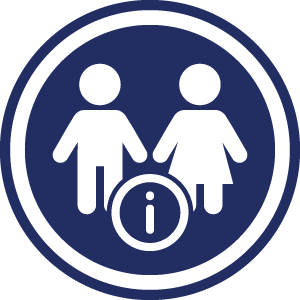What are autism sensory issues, and how do they affect daily life? Here's why recognizing them is key to better support and care.
Care Management: Adolescents
 Residential Treatment Facility
Residential Treatment Facility
A Residential Treatment Facility (RTF) is a 90-day authorization where children and teenagers live on a temporary basis to get treatment for severe emotional and/or behavioral disorders that cannot be managed in the community. Doctors, therapists, social workers, and childcare workers give care and treatment to children in RTFs. Family members are also very important members of the treatment team. RTFs are most helpful when families are involved in their child’s care. RTFs are not permanent places for children to live. They are not meant to be a place for children to live if they are not able to live with their parents. There are many
Community Rehabilitative Residence (CRR) Host Home/Therapeutic Foster Care (TFC)
Community Rehabilitative Residence (CRR) Host Home/Therapeutic Foster Care (TFC) is a service for members who cannot be safely maintained in the community with natural resources but do not require the structure of an RTF program. CRR/TFC Host Homes are intensive out of home treatment services where an individual resides with a family who has received extensive training to work with children experiencing behavioral and emotional difficulty. CRR/TFC provides individual, group and family therapy, as well as medication monitoring with school attendance in the community of the host home.
Partial Hospitalization (PHP)
Partial Hospitalization Services (PHP) are voluntary mental health services for children and teenagers with serious emotional and/or behavioral disorders. Partial Hospitalization allows a child/adolescent to receive special education classes and therapeutic services during the school day to prevent the need for an inpatient hospitalization or stay in residential treatment. Partial Hospitalization providers work closely with the child’s family and school district to develop educational and mental health treatment plans. Partial hospitalization is a short-term program which provides group and individual therapies, on-site psychiatric services, and works with schools to address a child’s educational needs in one setting while the family, school, and program staff work towards establishing safety and stabilize behaviors and mental health symptoms. This program is often referred to as school-based partial hospitalization. Partial Hospitalization services are typically reviewed every 90 days to ensure treatment is received in the least restrictive environment for each individual. The average length of time an individual receives PHP is one year; however, the actual length of treatment is based on individual progress and needs.
Acute Partial Hospitalization (APHP)
Acute Partial Hospitalization (
Family-Based Mental Health (FBMH)
Family-Based Mental Health (FBMH) is a 32-week, voluntary, family-oriented mental health service for children and teenagers with serious emotional and/or behavioral health disorders, and their families. Family-Based Mental Health is a voluntary service and
consists of a two-person team trained in a Structural Family Therapy (SFT) model
consisting of a three-year training program with ongoing supervision that provides
individual and family therapy, case management, crisis intervention and family support as
needed.
Psychological Testing
Psychological testing measures an individual’s performance at the time of testing; they do not predict future or innate potential. Psychological testing can consist of one or several research-backed tests and procedures used to assess specific aspects of an individual's psychological makeup; for example, IQ and personality. It is important to note that not all tests share the same validity or researched-based support.
Neuropsychological Testing
Neuropsychological testing helps to determine how a problem with your brain is affecting your ability to reason, concentrate, solve problems, or remember. There is a wide range of tests available. The best test or test(s) for you or your child will be determined by a qualified professional. In most cases, you will take a series of tests, rather than a single test.
Behavioral Health Rehabilitation Services (BHRS)
Behavioral Health Rehabilitation Services (BHRS) is a 26-week authorization with BHRS Exception Programs of Multisystemic Therapy has an Authorization of 27 weeks with Multisystemic Therapy for Problem Sexual Behaviors MST-PSB has a 32-week authorization and Functional Family Therapy a 22-week Authorization. Both BHRS and BHRS Exception Programs are voluntary Mental Health services for children and teenagers with severe emotional and/or behavioral disorder or developmental disability. The services are provided in the youth’s home, or in community settings, or at school.
Behavioral Specialist Consultant (BSC) is a professional, who has at least a master’s degree, works with you and your child’s therapist and treatment team when your child needs a special behavior management plan. To help understand the reasons for your child’s behaviors, a BSC may complete a Functional Behavioral Assessment (FBA). The BSC will work with you and the treatment team to develop a special behavior plan to help your child reach his or her goals. The BSC will also help you develop a crisis and safety plan.
Mobile Therapist or Mobile Therapy (MT) a professional, who has at least a master’ degree, and provides individual and family therapy in your home or in a community setting. Your Mobile Therapist (MT) can also help you develop a crisis and safety plan.
Therapeutic Staff Support (TSS) has at least an associate’s degree and 3 years of experience working directly with children. When natural and community supports are not enough, a TSS may be prescribed to teach your child new ways to better manage feelings and behaviors. The TSS works under the direction of the BSC or MT to carry out your child’s individualized treatment plan. The TSS also helps you and/or other caregivers to develop the skills needed to manage your child’s behavior.
Where To Find ECCM
Recent Posts
Discover a rewarding career as a Supports Coordinator at ECCM, empowering others, growing professionally, and making a real impact every day.
ECCM is proud to announce that it has been granted a 3-year accreditation (the longest length of time an organization can receive) from The National Association for the Dually Diagnosed (NADD)
